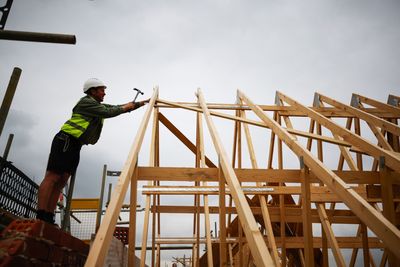I think you've some good points here - but I wanted to jump in and explain the rationale for mixed tenureship (or part V in itself).
I will start my reply with respect to the great lengths you went to in your response.
However it is arguable that rather than abolish directly building social housing and largely replacing it with part V, they could have changed how they accomplished it. Building 1200 homes in one estate immediately raises red flags. It is very unusual for privately developed estates to be built to this scale. Estates are usually split into smaller scale of 50-200 houses, even if they are right beside each other. This is to help create a sense of belonging to the local, smaller, community and to localise services for these estates eg shops, creches etc.
Obviously building one ginormous estate, likely with sparse facilities and then capping the income level of people there to mostly unemployed is going to turn out terribly. That doesn't mean the government should have stopped direct building. The could have split it into smaller local estates, supported by localised facilities. Then they could have allowed renters across a broader range of incomes to rent it, so by choice it would become a mixed income community. Essentially what they do in Vienna.
Instead they continued to cap the provision of social houses to mostly unemployed. (Although I will give them credit that the most recent income cap increases have greatly raised this.) Then sprinkled these people amongst private estates using part V. Great if the tenants are nice. But if you have the few same trouble makers who gave the old social housing states a bad name, now you've just spread the misery to John and Mary who are drowning in half a million euro of mortgage debt to live in the identical 2/3 bed house. If there are no provisions to effectively deal with this anti social behaviour, little is done. The police think it's a civil matter, unless serious assault or damage is involved. The council don't want to hear it as they have to house them somewhere, so evictions just cause them more problems. The trouble making tenants know it and realise they have nothing to lose. Worst case they go to prison for a few years (publicly funded) and then they have to be housed again when they come out.
Essentially anti social behaviour is blamed for the failings of the old council house estates. Yet little was actually done to deal with this. Instead part V helps spread it out, so statistically it looks a lot nicer, than having pockets of concentration. The actual people living in these anti social situations can just be ignored. I would bet it's not the majority of politicians living in the making of their own policies. If you were living in a situation similar to John and Mary above, it would be a lot easier to stomach if you knew you were also paying 10-15% of your income on the home. It's a lot less easier to stomach when they are forking out two grand in mortgage and fees and the trouble tenants are paying 10-15% of net income.
Another issue arising now is some councillors calling for a scheme similar to the tenant purchase scheme to be set up for part V houses. Allowing part V housing tenants to buy the homes at a substantial discount. Thankfully this is being opposed by some politicians. This would be another unjust policy and who knows if it makes it across the line one day. Essentially the government buying out private homes and giving it away at a discount, to the detriment of every mortgaged private purchaser in the estate, who gets no discount.
